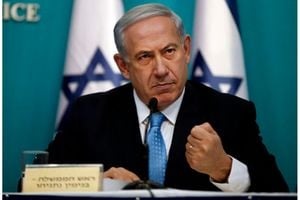Are we ready to face these two elephants in the room on GBV?

Mr Johnson Mayamba
What you need to know:
“In the post 16 days of activism, we should not relent in our pursuit of a proper legislation that fully addresses this silent bane, among others."
December 10, which was also the Human Rights Day, marked the end of the annual international campaign for 16 Days of Activism against Gender-Based Violence (GBV) that started on November 25. Already, a lot has been said and done within this period on protecting women and girls from violence. Many thanks to everyone who has rooted for women and girls’ rights in the past days. But I would like to address two issues of concern that many of us have shied away from.
On Monday, December 5, Daily Monitor ran a story on Page 24 where Sebei elders and Minister Peace Mutuuzo were clashing over bride price, one of the drivers of GBV. Hold on, I know bride price is ancient history but I am still on the warpath. While the minister insisted that bride price violates the rights of women and girls and that it should be banned, the elders accused her of promoting what they called “harmful Western cultures” and that she was disorganising their culture in exchange for donations from whites.
Of course the elders were speaking from their point of view because it is something they have, like it is in most African cultures, known for their entire lives. Mindset shifts among all stakeholders such as the elders, local, traditional and religious leaders to garner their support in fighting harmful practices against women and girls is a struggle that transcends 16 days of activism. It calls for a multifaceted approach to enable them to appreciate the rights of women and girls and eventually become champions.
While the government has done a tremendous work in enacting laws and policies that address GBV such as the Penal Code (Amendment) Act of 2007 and the Domestic Violence Act of 2010, we still haven’t fully addressed the issue of marital rape, which emanates from bride price. Unfortunately, most of us fear to openly discuss it.
One of the biggest obstacles in recognising marital rape as an offence is the nature of our society. From childhood, girls are brought up with the notion of the husband being the final person in any decision-making, who has absolute right over his wife. Society does not recognise non-consensual sex in marriage to be violence against woman. As parents and society push young adults into forced marriages, a man forcing himself on his wife is seen as claiming his conjugal rights, just because he paid bride price and maybe wedded that woman. A rape is normally a one-time or few occurrences, but marital rape allows for the victim to be raped over and over again, leading to numerous consequences. And the perpetrator is not a stranger but the “buyer” called husband. Indeed, marital rape is a more dangerous form of violence against women that we don’t see with our naked eyes nor point a finger to it, yet we are not normalising this conversation.
Among other international instruments, Uganda ratified the 1993 UN Declaration for the Elimination of Violence against Women, which lists marital rape as a form of domestic violence. In the post 16 days of activism, we should not relent in our pursuit of a proper legislation that fully addresses this silent bane, among others. This is in addition to teaching our children, boy or girl, about human dignity and respect for all so they grow up as champions of the rights of women and girls.
In a rather unpopular view, let me add fuel to the fire. Many of us still struggle with accepting transwomen, yet they also suffer similar or worse violence. In particular, denial of freedom of association, expression and mere ridicule of transwomen, and the very absence of gender affirming healthcare systems for them is in itself GBV. “To deny people their human rights is to challenge their very humanity,” Nelson Mandela said. Freeing transwomen from stigma and fear should be included in our daily advocacy campaigns in the post 16 days of activism.
That said, we still have a long way to go in freeing all women and girls from GBV and fear, especially from these two −marital rape and transphobia. The campaign should not just end with 16 days of activism. This is because fighting oppression has never been an easy task.




